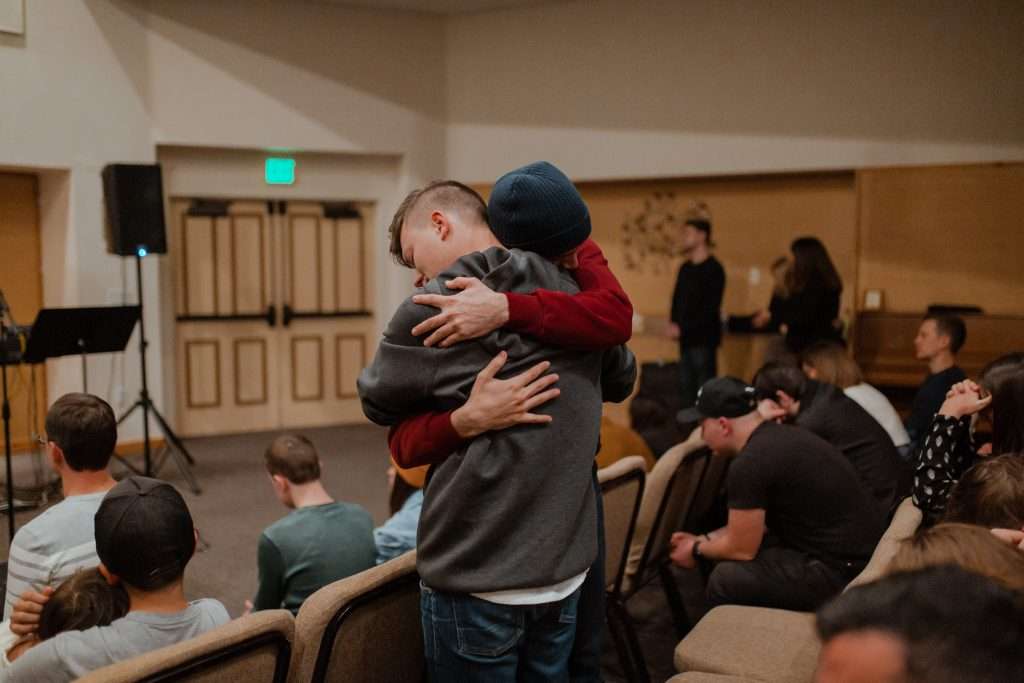Applying insights from neuroscience to create healthier communities

What does feeding the good wolf mean?
The concept of “feeding the good wolf” comes from a story attributed to Indigenous peoples of North America. The story conceives of two wolves that live inside each of us – a good wolf and a bad wolf. The good wolf is kind and compassionate. The bad wolf is warlike and destructive. Throughout our lives these two wolves are always at war. The wolf that wins this continuous battle is the one you feed. Therefore ‘feeding the good wolf’ means nurturing those parts of us that are kind and compassionate.
In a recent Slate article, legal analyst Dahlia Lithwick wrote: “To be hopeful in bad times is not just foolishly romantic. It is based on the fact that human history is a history not only of cruelty, but also of compassion, sacrifice, courage, kindness. What we choose to emphasize in this complex history will determine our lives.”
In other words, feeding the good wolf rather than feeding the bad wolf. In an interview, noted marriage counselor Terrence Real, spoke of the deliberate choices that a spouse can make during moments of stress and tension:
“When my automatic reactivity is flooding over me, am I going to act it out, or am I going to take a break, take a walk, splash some water on my face, talk to my little boy inside me, do some meditation, get centered in that part of you that wants to make repair? And, in that moment, we can literally change the legacy…of how you were raised and handing your kids a new default that is kinder and more humane and wiser.”
While he didn’t use the Good Wolf terminology, this therapist was advocating for actions that would feed our “good wolf,” repair relationships, and, in so doing, hand down a more hopeful future to the next generation.
“When my automatic reactivity is flooding over me, am I going to act it out, or am I going to take a break, take a walk, splash some water on my face, talk to my little boy inside me, do some meditation, get centered in that part of you that wants to make repair?
Terrence Real
Feeding the good wolf: a global example
In 1948 the U.S. Government initiated The Marshall Plan, a program to provide aid to Western European countries, whose economies and infrastructures had been devastated during World War II.
Ultimately, aid from the U.S. was distributed to 16 European countries to help them rebuild their economies and stabilize their governments.

U.S. leaders were wise enough to understand that it was within the nation’s interests not to punish those countries who had opposed them during the war, or leave them to fend for themselves, but to actively work to rebuild them. By doing so, they helped to create the stable conditions that allowed democratic institutions –and cooperation between nations –to thrive. The architect of the plan, U.S. Secretary of State George Marshall, explained at the time: “Our policy is not directed against any country, but against hunger, poverty, desperation and chaos.”
Deep brain issues
What stands in our way from choosing to heal, repair, and help ourselves while also helping others? About 200,000 years of history, during which our brains have been primed to divide the world into “them” and “us,” and to focus on protecting and nurturing “us” while vanquishing, neutralizing, and destroying the threat of “them.” There are very few of us who haven’t experienced the impulse to punish, seek revenge, inflict pain, hurt or blame, even if we recognize doing so may be counter-productive or self-destructive. On a societal level, we see public policies that are often enacted as a result of highly emotional responses to incidents or events, with the intent to punish or hurt others, even when evidence tells us they will backfire. Sometimes, these instincts are so overwhelming they obliterate all rational thought or action.
Learning from neuroscience
Our mission at Good Wolf is to use neuroscience to help us, individually and as a society, make a “brain pivot” from a “them vs. us” mentality to an “all for one and one for all” approach. A key part of this process is feeding the good wolf, individually and collectively.
We know that the brain stays plastic – i.e. capable of change – throughout our lifespan. We know that healthy brains are capable of being self-governing, empathetic, and self-reflecting. Good Wolf has already successfully demonstrated that its 3-step process can help to create healthier organizational cultures by fundamentally changing the way in which individuals react to one another. We plan to adapt this process to develop public policies that are humane, effective, evidence-based, and that keep feeding our good wolf in all of us.
To learn more about your brain, and how understanding it can change your life, sign up to our newsletter below.
